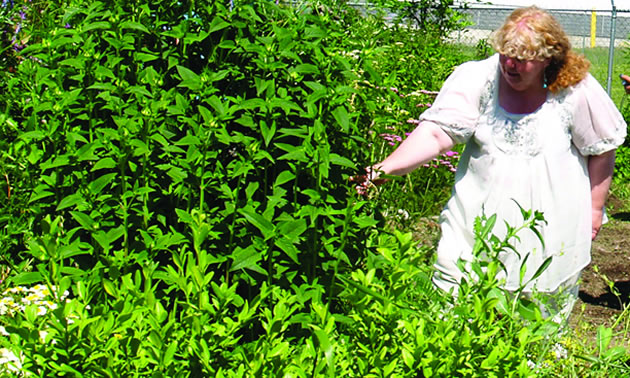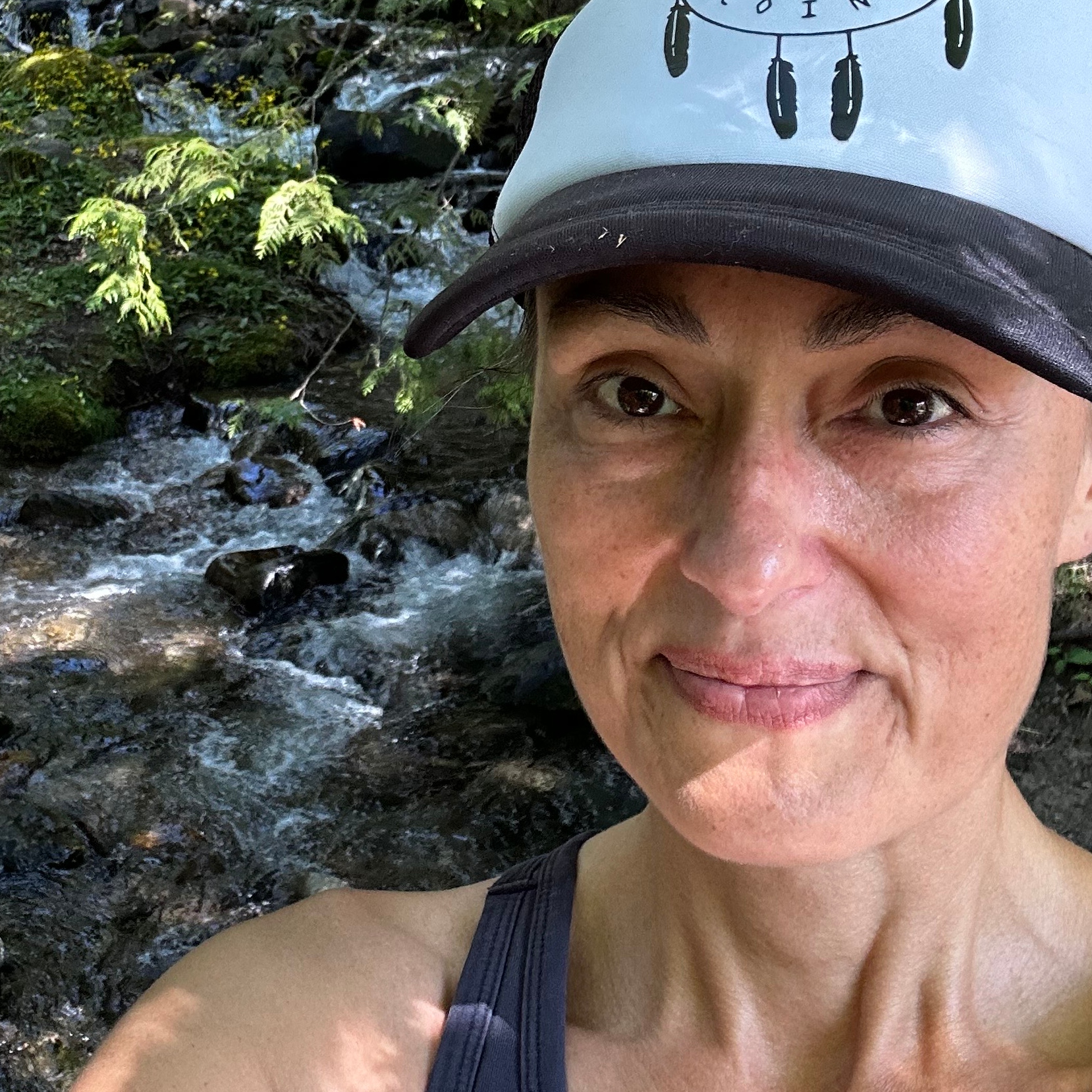Creston education, naturally
The herbal practitioner program through the Creston campus of College of the Rockies has been nothing short of a growing success

Herbal practitioner program instructor, Rachel Beck, examines some fresh herbs. — Photo courtesy College of the Rockies
College of the Rockies has done an excellent job offering adult education at various locations throughout the Kootenays. The Creston campus is one that offers a number of signature courses with a very popular option being the herbal practitioner program. This program first ran in 2001 and, since that time, has grown tremendously. Instructor Rachel Beck, who developed the program, said that she is amazed with how it has expanded.
“It started out simply in a classroom format, mostly offered to local people. It then grew to the point where we were having people coming from quite the distances,” said Beck. “One woman drove down from Vernon for the in-class portion, one came from Lethbridge. These were people that really wanted to take the program.”
When the college realized it was filling a need, the program was expanded to include an online format, which often accepts students from around the world. There is also now a version offered specifically for those who are already in health care and wish to expand their knowledge. This year, Celebrating Herbs is the newest addition to the Creston campus’s program guide. This is a general interest course that, at a month long, is geared for those who want a basic, rounded understanding of how to use herbs in different formats.
“There were so many people who said to me, ‘Oh, I’d like to do it but it’s just such a big commitment,’ so we wanted to fill that gap as well,” said Beck.
What is it that puts Creston’s herbal practitioner program in such high demand? Class sizes are capped at 12 people so Beck can give very individualized attention and offer a strong hands-on component to the program. Even for online students, live chats three times a week are an integrated part of learning. Students are also invited to a three-day summer seminar free of charge. It is a well-rounded form of learning and a certificate can be earned after 10 months. This is reasonably in-depth training with the primary alternative being a four-year clinical herbalist course.
The course opens doors for its graduates who are going on to work in a number of different industries. Beck said that, culturally, there is a huge swing towards natural alternatives in medicine. Health food stores and pharmacies represent a growing demand for trained staff that can talk to customers about a variety of options. Many students go on to create and market their own herbal products, or even growing herbs for a commercial market. Others choose to take the course to complement their current career. Midwives and massage therapists are examples of professionals who have taken the program to work in conjunction with their previous education.
In order to ensure that students are prepared for any field they choose to enter, the herbal practitioner program covers a wide range of topics. The history of herbalism, anatomy and physiology, nutrition, botany and hands-on experience with plants are all areas that students will learn about. Eighty per cent of the course focuses on indigenous herbalism with the remainder looking at different herbs from around the world. There is also a section that focuses on business and ethics.
“We want to help students take what they’ve learned and translate it into business,” said Beck. “It’s really important to me that it doesn’t become a course they take and then can’t use to get a job. I also really want to make sure they have the ability to use the information ethically.”
Creston has been a very supportive community.
“Our herb group has sprouted out of this and we have 40 members,” said Beck, “people in the community who just want to learn about herbs. That’s bigger than the herb club in Winnipeg, and they have a really good one there. I think it’s quite wonderful that Creston is a little more open than some communities. I love it!”
The College of the Rockies is also very open to this aspect of learning. It has been way ahead of other institutions in its naturalist programming, said Beck. Because of this, the course has been able to evolve to fit a variety of needs. Additionally, the Creston campus boasts a greenhouse that is utilized in the classroom. This May, the college grounds will also feature an educational herb garden that will be open to the public.
The program will remain flexible and Beck said it will definitely continue to change in upcoming years. There will certainly be an ongoing priority to meet the interests of students in the best way possible. There is no doubt that the herbal practitioner program has been a success so far.






Comments